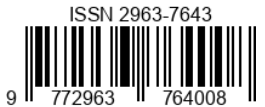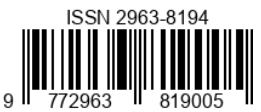Analisis Pengaruh Faktor Pertumbuhan Ekonomi, Pendidikan, Dan Pengangguran Terhadap Ketimpangan Distribusi Pendapatan Di Indonesia
DOI:
https://doi.org/10.55606/jekombis.v3i1.2774Keywords:
Unemployment, distribution inequality , economic growthAbstract
High economic growth has not had a positive impact on reducing income inequality in Indonesia. Quality education can provide relevant skills and knowledge to obtain higher paying jobs. In addition, education can also raise awareness of the importance of equality and fight for equal economic rights for all individuals. Increased Employment Opportunities: Tackling unemployment is a priority in efforts to reduce inequality in income distribution. The government needs to create policies and programs that involve the private sector and promote investment that can create jobs. Improving the quality and relevance of workforce training also needs to be addressed to meet the changing demands of the job market.This discussion emphasizes the importance of the linkages between economic growth, education, unemployment, and income distribution inequality in Indonesia. By understanding these relationships, the government and stakeholders can design integrated and sustainable policies to create a more inclusive economy and reduce income inequality in Indonesia.
Downloads
References
Sung, H. E., & Rhee, K. H. (2019). The Effects of Economic Growth, Education, and Unemployment on Income Inequality in Indonesia. Social Indicators Research, 144(1), 387-406.
Damayanthi, I. W. I. K., & Lestari, S. (2018). The analysis of economic growth, education, and unemployment on income inequality: A case of provinces in Indonesia. International Journal of Innovation, Management and Technology, 9(3), 122-126.
Rithuaningsih, E., & Rahayu, M. (2017). The Effects of Economic Growth, Education, and Unemployment on Income Inequality in Indonesia. Economics Science Letters, 4(1), 20-27
Downloads
Published
How to Cite
Issue
Section
License
Copyright (c) 2023 Jurnal Penelitian Ekonomi Manajemen dan Bisnis

This work is licensed under a Creative Commons Attribution-ShareAlike 4.0 International License.







